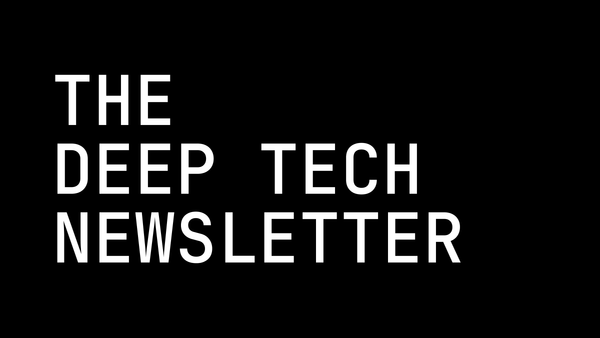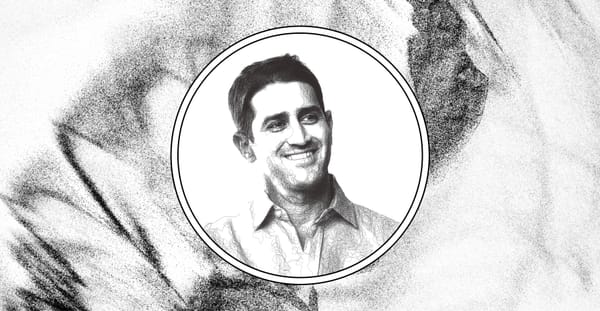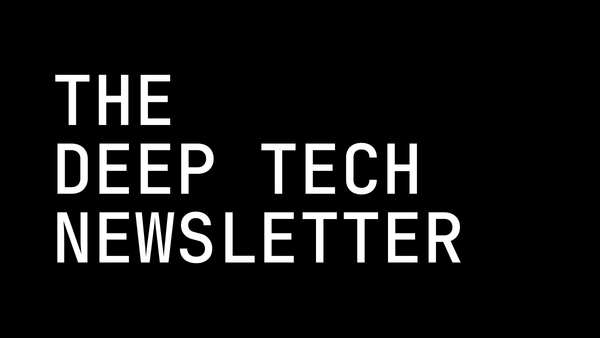DTN 082: DeepMind wins Nobel Prize for AlphaFold
Plus: Air Force's mysterious spaceplane prepares for a novel maneuver, Taiwan's electricity problem, lunar material science, NOAA drops scientist’s ashes into the eye of a hurricane, and more.


AI wins another Nobel, this time in Chemistry: Google DeepMinders Hassabis and Jumper awarded for AlphaFold
“A trio of scientists consisting of Demis Hassabis, co-founder and CEO of Google’s AI division DeepMind, as well as John Jumper, Senior Research Scientist at Google DeepMind and David Baker of the University of Washington have been awarded the 2024 Nobel Prize in Chemistry for their groundbreaking work in predicting and developing new proteins. The DeepMinders won for AlphaFold 2, an AI system launched in 2020 capable of predicting the 3D structure of proteins from their amino acid sequences. Meanwhile, Baker won for leading a laboratory where the 20 amino acids that form proteins were used to design new ones, including proteins for ‘pharmaceuticals, vaccines, nanomaterials and tiny sensors,’ according to the Nobel committee’s announcement.” (VentureBeat)

- AI pioneer Geoffrey Hinton, who warned of X-risk, wins Nobel Prize in Physics
- Sonair takes a cue from dolphins to build autonomous 3D vision without lidar
- The US military’s X-37B spaceplane is preparing for a “novel space maneuver”
- Google identifies low noise “phase transition” in its quantum processor
- SpaceX’s next Starship launch—and first catch—could happen this weekend
- Taiwan makes the majority of the world’s computer chips. Now it’s running out of electricity


The now-demolished Agbogbloshie Scrapyard in Accra, Ghana, once received about 15,000 tons of electronic waste each year, making it one of the largest e-waste processing sites in Africa.
Ghana has become a major dumping ground for the world's electronic waste. Thousands of workers, many of them young climate migrants from Ghana's impoverished Upper East region, make a precarious living by salvaging valuable metals from this e-waste, often exposing themselves to toxic chemicals and hazardous conditions while earning around $60 per week. While this informal recycling economy provides crucial income for many families, it comes with severe environmental and health consequences as toxic materials leach into soil and water, forcing some communities to relocate due to poisonous fumes from burning electronics. (via NPR)

- Asteroid mining: A potential trillion-dollar industry
- Potatoes are better than human blood for making space bricks, scientists say
- CERN trains AI models to revolutionize cancer treatment
- Solar desalinization system from MIT needs no grid connection or battery backup
- Dynamic environmental control for more efficient vertical farming
- Highly sensitive quantum sensors for medicine: First successful demonstration of a dual-media NV diamond laser system
- AI and quantum mechanics team up to accelerate drug discovery
- What's the best material for a lunar tower?
- Quantum communication: Using microwaves to efficiently control diamond qubits
- Octopus suckers inspire new tech for gripping objects underwater

- SpaceX alums are working to raise a hefty $550M first deep tech fund
- Venture studio Diagram expands into climate tech with oversubscribed $58M fund
- MiLaboratories gets $10M for a platform play to accelerate genomic research
- Basecamp Research draws $60M to build a ‘GPT for biology’
- Amazon backs carbon capture startup Paebbl in $25M round as governments commit billions to the tech
- Q-CTRL raises $59M for quantum computing software
- KoBold Metals, which uses AI to help find critical minerals for the energy transition, raises $491M
- Impulse Space lands Space Force contract for “tactically responsive” orbital operations
- Flying taxi startup Lilium faces insolvency if not able to "immediately" raise more capital
- Lithium extraction startup EnergyX raised a $75M round
- Gropyus, a startup that prefabricates buildings using robots, raised a $109M round
- Blue Energy, a startup building modular nuclear power plants in shipyards, raised a $45M Series A
- Suki, an AI technology for healthcare, raised a $70M Series D

What deeptech startups are struggling with right now / Twenty years after its discovery, graphene is finally living up to the hype / How Can Math Help Beat Cancer? / California Bans Sell-By Dates / Future of .io domains uncertain as UK hands over Chagos islands / Our son died. Now we can use his sperm to have a grandchild / Do U.S. ports need more automation? / US House panel probes FCC decision to deny Starlink nearly $900M / The million-dollar mystery of milk.com / I immersed myself in furry culture. You don't understand them / Nearly all of the Google Images results for "Baby Peacock" are AI generated / Mars is now a political football / What is the history of the use of "foo" and "bar" in source code examples? / Biblical plant with medicinal properties resurrected from 1,000-year-old seed / The FBI secretly created a coin to investigate crypto pump-and-dump schemes / The World's First Commercial Space Station Looks Like a Luxury Hotel Inside / The sun unleashes its strongest flare this cycle / Internet Archive Suffers 'Catastrophic' Breach Impacting 31 Million Users / 69,000 Bitcoins Are Headed for the US Treasury—While the Agent Who Seized Them Is in Jail / NOAA drops scientist’s ashes into the eye of Category 5 Milton / Nvidia CEO Says ‘Reasoning’ AI Will Depend on Cheaper Computing / Cannibalized Captain of Doomed Arctic Expedition Identified by DNA Analysis / The FBI Still Hasn’t Cracked NYC Mayor Eric Adams’ Phone / ULA hasn’t given up on developing a long-lived cryogenic space tug / How This Video Game Controller Became the US Military’s Weapon of Choice / How AI-generated content is upping the workload for Wikipedia editors
HAUS specializes in public relations and creative services for deep tech startups.




